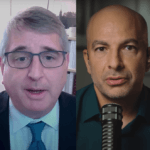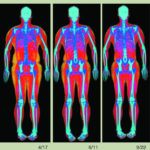
#278 ‒ Breast cancer: how to catch, treat, and survive breast cancer | Harold Burstein, M.D., Ph.D.
“We’ve completely flipped the outcomes for HER2-positive breast cancer, where it has gone from one of the most feared types of breast cancer to one of the most successfully treated types of breast cancer.” —Harold Burstein

#170 – AMA #25: Navigating the complexities and nuances of cancer screening
“We screen often, we screen early, and we screen aggressively.” —Peter Attia

#61 – Rajpaul Attariwala, M.D., Ph.D.: Cancer screening with full-body MRI scans and a seminar on the field of radiology
“This is where an MRI becomes a beautiful machine in the fact that it actually allows you to take the ‘yes or no’ binary answer of functional nuclear medicine and combine it with the anatomic localization and understanding of tissue types of radiology. . .I merged those two together on the one machine.” — Raj Attariwala

#39 – Ted Schaeffer, M.D., Ph.D.: How to catch, treat, and survive prostate cancer
“With our algorithm. . .you can reduce biopsies by about one third, reduce detection of low-grade cancer by about one third, and you actually don’t compromise the detection of higher grade disease. . .we have great tools to offer people very sophisticated screening for their prostate cancer.” —Ted Schaeffer




